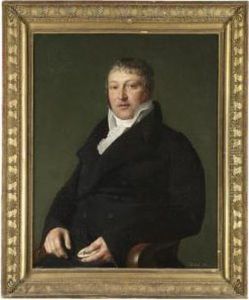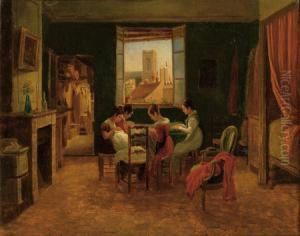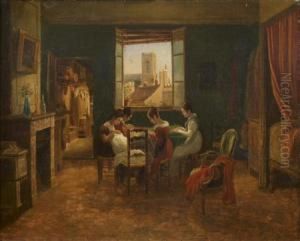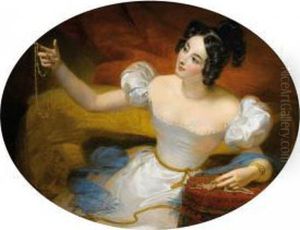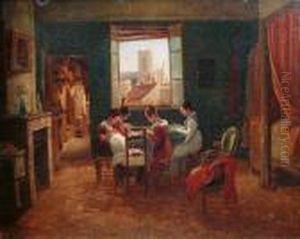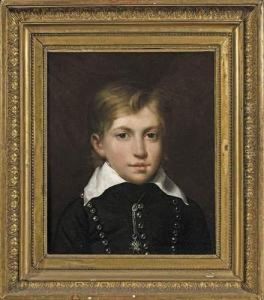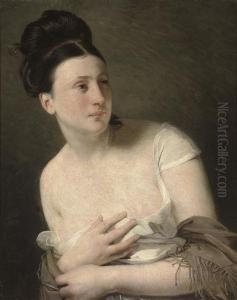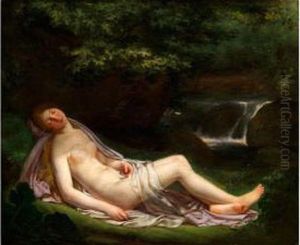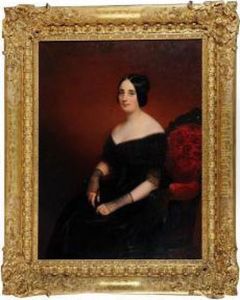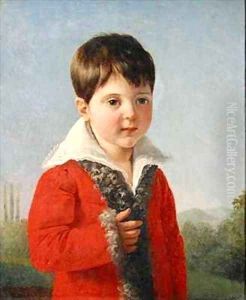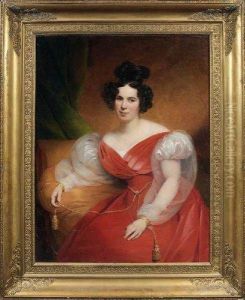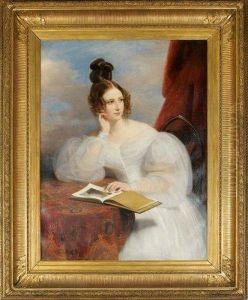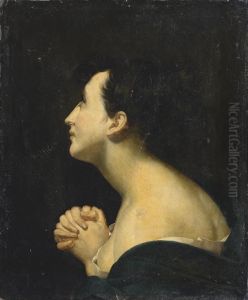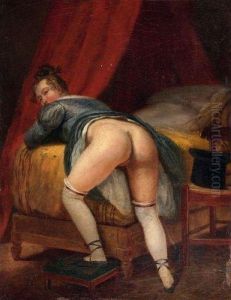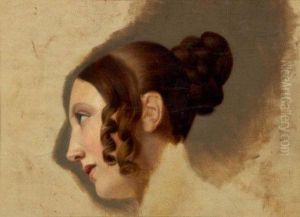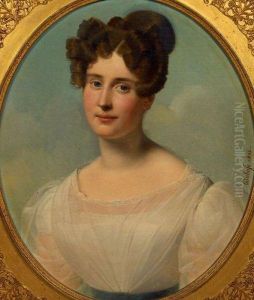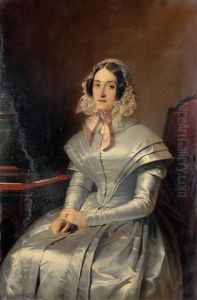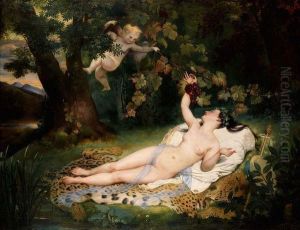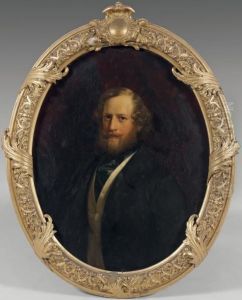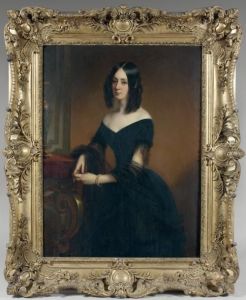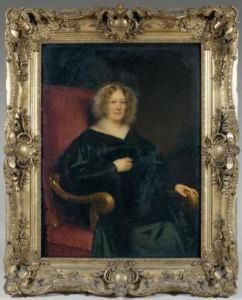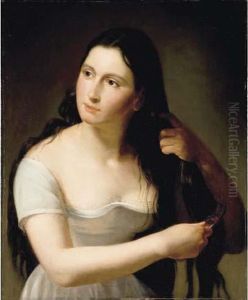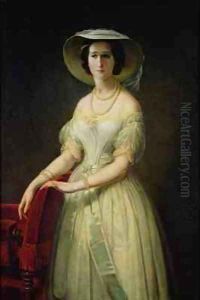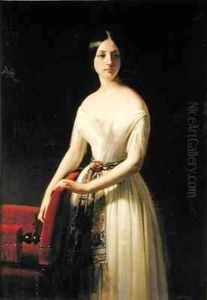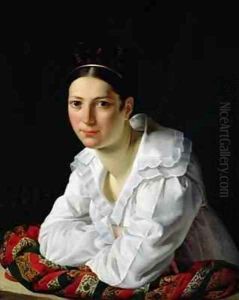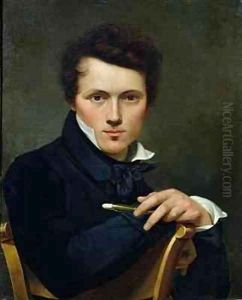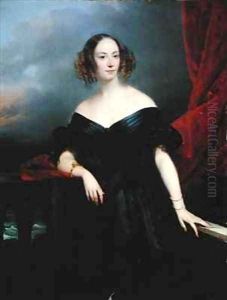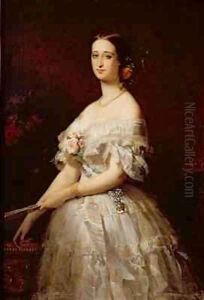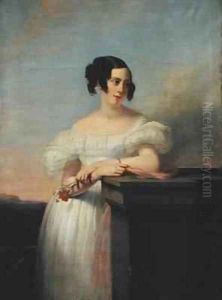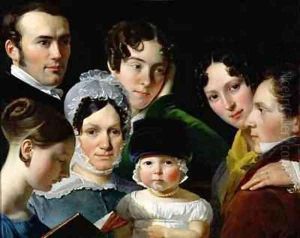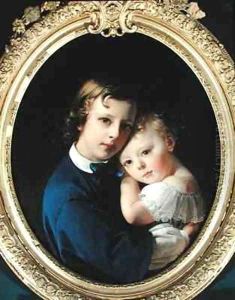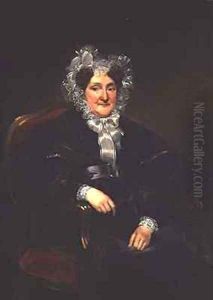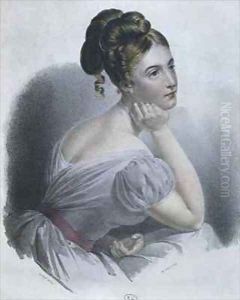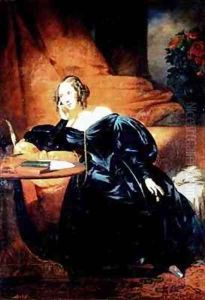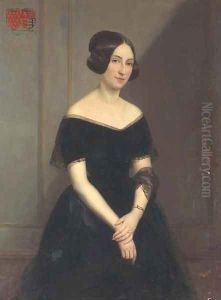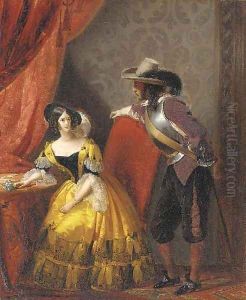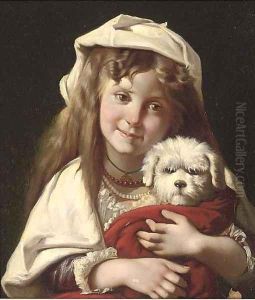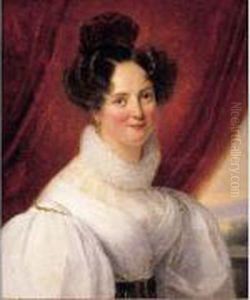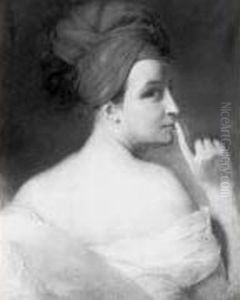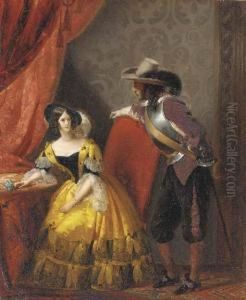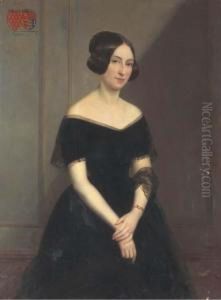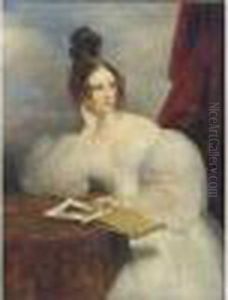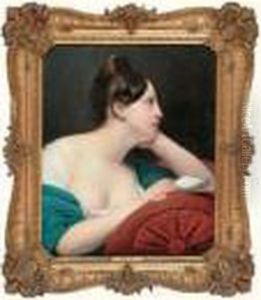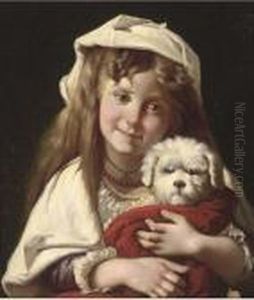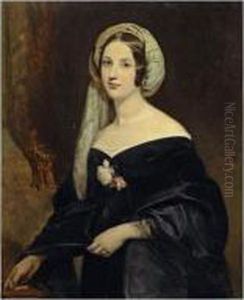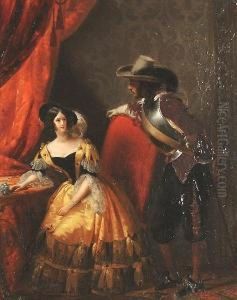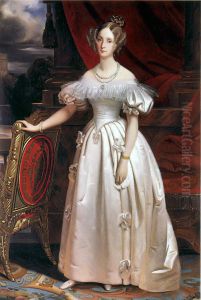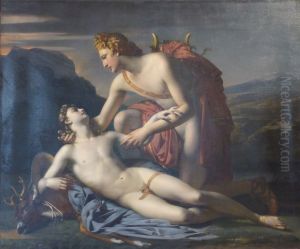Claude-Marie Dubufe Paintings
Claude-Marie Dubufe was a French historical and portrait painter whose career flourished in the early to mid-19th century. Born on March 4, 1790, in Paris, he was the son of the painter Claude-Joseph Dubufe. Under the guidance of his father and later studying at the École des Beaux-Arts in Paris, Dubufe honed his artistic skills and developed a style that was influenced by the Neoclassical movement, which was prevalent during his formative years.
Dubufe's work was characterized by its elegance, refined brushwork, and often sentimental subject matter. He gained recognition for his historical paintings, but it was his portraiture that garnered him the most acclaim and clientele. Dubufe's portraits were sought after by the French elite, including royalty and aristocrats, as they captured the grace and sophistication desired by his patrons.
Throughout his career, Dubufe exhibited at the Paris Salon, the official art exhibition of the Académie des Beaux-Arts in Paris. His works were well-received, and he was awarded several medals for his contributions to French art. In addition to his success at the Salon, Dubufe's reputation spread beyond France, and he received commissions from clients across Europe.
Not only was Dubufe a prolific artist, but he also played a role in the artistic community as a teacher. He passed on his knowledge and skills to a number of students, including his own son, Édouard Dubufe, who also became a successful portrait painter.
Claude-Marie Dubufe's legacy is marked by his ability to capture the spirit of his age through portraiture and his contribution to the continuation of the Neoclassical tradition in French painting. He passed away on August 11, 1864, in Écouen, a commune in the northern suburbs of Paris. His artworks continue to be appreciated for their historical value and their representation of 19th-century French society.
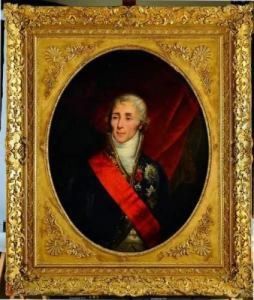
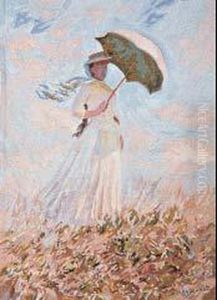
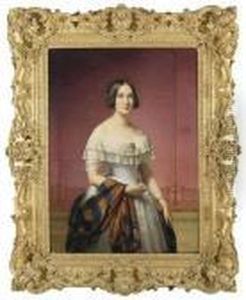
![Portrait De Jeune Femme [ ;
Portrait Of A Young Woman ; Oil On Canvas Signed ; In A Painted Oval ;
It Will Be Included In The Catalogue Raisonne Being Prepared By Mr
Emmanuel Breon]](https://www.niceartgallery.com/imgs/1284391/s/claudemarie-dubufe-portrait-de-jeune-femme-portrait-of-a-young-woman-oil-on-canvas-signed-in-a-painted-oval-it-will-be-included-in-the-catalogue-raisonne-being-prepared-by-mr-emmanuel-breon-6e5a2132.jpg)
